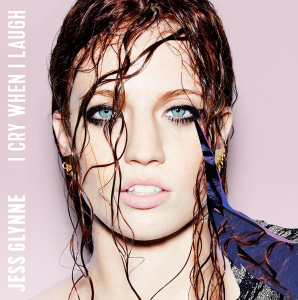 ★★★★☆
★★★★☆
Grammy award-winning British artist Jess Glynne first made a splash in the music scene when she was featured on Route 94’s “My Love” and Clean Bandit’s “Rather Be” back in 2014. Both records reached number one on the U.K. Single’s Chart, and both are featured on her new album, “I Cry When I Laugh,” which was released Sept. 11. The album was released in the U.K. last month and has topped the charts since.
The record opens with “Gave Me Something,” an upbeat, optimistic tune that leans more toward soulful Rhythm and Blues than Glynne’s typical dance pop niche. Next is “Hold My Hand,” a robust, romantic track with a fresh mix of traditional piano sounds and contemporary electronic, in which the singer declares to her lover, “Soul is like a melting pot when you’re not next to me. Tell me that you’ve got me and you’re never going to leave. Trying to find a moment where I can find release. Please tell me that you’ve got me and you’re never going to leave.”
In the track “Real Love,” Glynne once again partners up with English electronic band Clean Bandit, proving that this collaboration can do no wrong. The song starts off slowly with the delicate playing of a single violin. Later, the soft sounds of piano keys can be heard before the steady beating of a drum is added in, gradually building until the song finally explodes into an infectious dance tune.
Glynne slows things down with the tracks “Take Me Home” and “Saddest Vanilla,” the latter of which features Emeli Sande. On this track, Glynne juxtaposes the typically happy connotation of ice cream with bad memories of her ex. “This is the saddest vanilla that I’ve ever tasted,” she sings in the chorus, “The saddest vanilla and I don’t want to waste it. Sat at an ice cream parlor, you went and broke my heart. Yeah now I’m the saddest vanilla.”

The standard version of the album finishes off with “Right Here,” another terrific electro-dance track that somehow manages to successfully borrow from the influences of ’90s R&B and jazz. In it, Glynne coyly sings, “Infatuation took a hold of my mind. I wouldn’t change it for the world, now they mind. You played me hard to get for a while. Still got me deeper every day with your smile.”
The deluxe version of “I Cry When I Laugh” features five bonus tracks including her two features on “Rather Be” and “Real Love,” as well as the tracks “Home,” “Bad Blood” and lastly “Not Letting Go,” a fabulous end-of-summer track by popular English rapper Tinie Tempah.
All in all, “I Cry When I Laugh” is a solid debut album. While some have denounced the record as messy and inconsistent, Glynne’s willingness to experiment as a new artist should be praised. Glynne’s vocals remain impressive throughout the entire record as she shows her versatility in both range and style.
The lyrical content of the record builds from one song to the next, so much so that the entire album unfolds as a complete story to the listener. Playing with rhythm, genre and sound does not change the overpowering lyricism that pervades the entirety of “I Cry When I Laugh.” Glynne’s songwriting is unique and refreshing. Even when it touches upon the commonplace topics of love and break-ups, it rarely crosses the line into triteness.
“I Cry When I Laugh,” as its title suggests, is an album suffused with a sense of vulnerability. Love, loss, regret and self-identification are all struggles that the record tackles head-on. Glynne’s work is frank, poignant and relevant, and the impact of the album’s lyrical sensitivity and candidness is only further accentuated by the deep, stirring vocals of the English songstress.
Glynne is an artist for romantics, for those unafraid of tackling the difficulties and intimacies most people deal with at some point in their lives.
Perhaps in her sophomore studio album, Glynne could attempt to satisfy critics by pinpointing her ideal sound instead of flitting in between genres, but that experimentation doesn’t make “I Cry When I Laugh” any less successful. Glynne has done more than enough to solidify herself as a talented, up-and-coming artist, proven by this record’s early success in the U.K. and beyond.



















